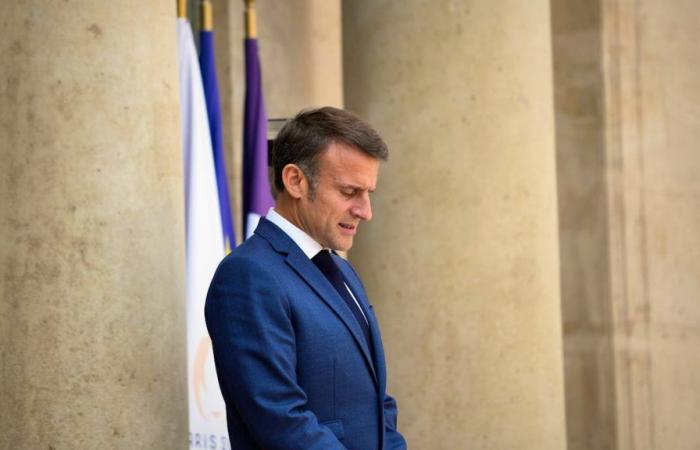Emmanuel Macron had decided to dissolve the National Assembly in order to counter the extreme right.
Getty Images
French President Emmanuel Macron’s failed gamble to dissolve the National Assembly – which resulted in a historic electoral score for the far-right National Rally (RN) party on Sunday – is part of a long series of crises since he came to power in 2017.
Here are the most notable ones.
The Yellow Vests
This anti-government mobilization, initially born on social networks against the increase in fuel taxes, mobilized 282,000 people on November 17, 2018 across the country. The demonstrators, dressed in yellow vests, blocked roads.
The movement reached its peak on December 1 with the ransacking of the famous Arc de Triomphe in Paris.
After several Saturdays of violence, Emmanuel Macron backtracks on the increase in fuel taxes, electricity and gas prices are frozen, and the minimum wage is increased.
The movement, which has been declining since spring 2019, was marked by 11 deaths and some 2,500 injuries among the demonstrators, as well as 1,800 injuries among the police.
“War” against Covid-19
The coronavirus pandemic arrived in France in early 2020, killing almost 70,000 people that year and causing the country to run at a standstill.
On March 17, Emmanuel Macron declared a “health war” and a first lockdown, while the hospital was overwhelmed with cases.
Faced with successive variants, the executive is imposing restrictions on daily life, such as wearing masks or the health pass. It is also generously distributing subsidies to support French businesses.
Pension showdown
In early 2023, the presidential camp’s unpopular plan to push back the legal retirement age by two years to 64 sparked a mobilization lasting more than three months, with marches exceeding three times 1.2 million people, according to the police.
Refineries, transport, and ports are blocked. The garbage collectors’ strike turns Parisian sidewalks into open-air trash cans.
On March 16, Prime Minister Elisabeth Borne activated an article of the Constitution to adopt the pension law without a vote, despite multiple appeals that have become frequent in a National Assembly where the president has only had a relative majority since his re-election in 2022.
Riots after Nahel’s death
On June 27, urban violence broke out in the country after the death of Nahel, a 17-year-old killed by police gunfire after fleeing during a traffic stop in the Paris region. An act described as “inexcusable” by the head of state.
The riots mobilize 45,000 police officers for five consecutive nights, with nearly 4,000 arrested. Emmanuel Macron announces a draft “emergency law” to accelerate reconstruction in cities affected by the destruction.
The police officer accused of the teenager’s death is being charged with voluntary manslaughter.
Defeat in the European elections and surprise dissolution
On June 9, 2024, the National Rally came out on top in the European elections with 31% of the vote. In the process, the head of state dissolved the National Assembly, to everyone’s surprise, calling early legislative elections.
Three weeks later, on June 30, the RN and its allies won more than a third of the votes and garnered 39 deputies in the first round. The presidential camp confirmed its defeat in the European elections, coming in only third place.
(afp)







